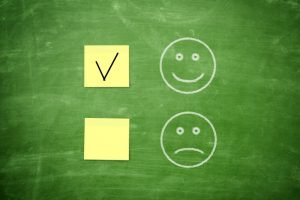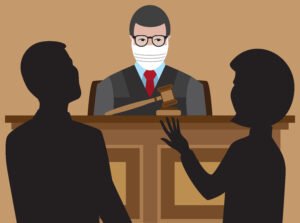(Photo via Shutterstock)
I came across Sterling Miller’s rules for in-house counsel, courtesy of the InHouse Counsel Newsletter. They are very good rules, especially for newer practitioners and a refresher for those of us who have been in the trenches for more years than we care to count. They are the soft skills that we need. In some ways, the rules are variants of the Golden Rule, which we learned or should have learned in kindergarten, but in our rush to success, we have lost them.
Miller sets forth more than two dozen rules. They apply to all lawyers and not just to in-house counsel. So, for example, one rule is to “say it and write it as simply as possible — get to the bottom-line ASAP.” Do I need to tell you how many times clients would call me, rather than the author of the memo to vent about what a useless memo it was?
The problem was content. The memo was a law review article (we in-house counsel were not paid by the word), rather than laying out what the law was (to the extent that it could be discerned, not always an easy task) and making suggestions about possible courses of action. Sometimes the suggestion was clear: don’t do it, but that’s a business decision for the client to make. It’s much harder to write something simply and clearer than to blither for pages. (This applies to you, outside counsel. We don’t assume that we’re paying you by the word, either.)
KISS applies here. Not the Gene Simmons band, but the acronym for “Keep it simple, stupid.” Clients appreciate brevity and the bottom line right away, especially if the issue is time sensitive.
Another Miller suggestion: “Deliver bad news and good news — fairly and honestly. Keep an even keel.” Easier said than done, isn’t it? One of the hardest things for newer practitioners to learn and get comfortable with is the idea that it’s the client’s problem, it’s not YOUR problem. Don’t take on your client’s head trips. You didn’t get the client into this mess (unless there’s malpractice lurking), and all you can do is do your best with the facts that you are given. Don’t beat around the bush with bad news. I think most people can absorb bad news if they receive it as quickly as possible and with possible suggestions as to how to overcome it. Tantrums? They will get over them. Good news? Congratulations!
One of the issues that always arose when I was trying to settle a case was the math. Plaintiff’s counsel would make a demand, and I always asked how that number was reached. In other words, show the math, show how you got to where you are. It was impossible for me to get settlement authority without explaining how the demand was reached. On more than one occasion, I was told by opposing counsel to “bring the CEO and the checkbook.” Fat chance. C-suite executives are numbers driven, and without an explanation of how the demand was reached, settlement negotiations were full stop.
Another one of Miller’s rules was to pick up the phone; don’t just email everything every time. Talking on the phone and not texting leads to less likelihood that either the text or the email can be misconstrued, leading to cliff jumping when there’s no need. It’s nice to hear a voice and schmooze for a minute or two, even if it’s just the normal pleasantries that start a conversation. Usually there’s some common ground to be found, especially in these pandemic times.
Underpromise and overdeliver. Clients love that. No further explanation needed.
We fear not knowing it all. Right? There’s no possible way that we can know it all, but we are afraid of telling the client that, worrying that the client will think you’re a bozo because you don’t know it all. Does the client know it all? Of course not. Just don’t bulls- the client. Don’t tell her you know it when you don’t. There’s nothing wrong with having to research to provide the client with the correct information, and most clients (at least those who have a brain cell) will appreciate the care you’re taking with the matter. Nobody’s perfect.
My boss used to say to “keep the boss’s boss off the boss’s back.” As Miller says, “Don’t let the boss be surprised.” The theory is no surprises. We can handle anything, even the worst, if we’re not surprised. Sometimes outside counsel surprised us with bills that were way out of line. Did outside counsel ever call in advance to let us know that there was “incoming” on the way? Of course not. Outside counsel never liked to be the bearer of bad news. Everything was hunky-dory … until it wasn’t. Share the bad and the ugly. There’s nothing worse than a CEO with his top blown, and we’re scrambling around searching for it.
Lastly says Miller, “Smile. Have a sense of humor.” Given the number of sourpusses who practice law, that may not be so easy but it’s worth the effort. Remember to be nice, especially in these days, but really all the time, regardless of events. Everyone has their own personal battles, and so I think we need to cut each other some slack, now more than ever. I hope that will continue when life returns to whatever normal will be and whenever that will be.
Miller’s corollary to that is “Don’t be a jerk.” Amen. I don’t know what happens in law schools that can turn decent people into jerks, but please skip that class. Your reputation is the only thing that follows you your entire career. Prize it, guard it. It’s golden.
 Jill Switzer has been an active member of the State Bar of California for over 40 years. She remembers practicing law in a kinder, gentler time. She’s had a diverse legal career, including stints as a deputy district attorney, a solo practice, and several senior in-house gigs. She now mediates full-time, which gives her the opportunity to see dinosaurs, millennials, and those in-between interact — it’s not always civil. You can reach her by email at oldladylawyer@gmail.com.
Jill Switzer has been an active member of the State Bar of California for over 40 years. She remembers practicing law in a kinder, gentler time. She’s had a diverse legal career, including stints as a deputy district attorney, a solo practice, and several senior in-house gigs. She now mediates full-time, which gives her the opportunity to see dinosaurs, millennials, and those in-between interact — it’s not always civil. You can reach her by email at oldladylawyer@gmail.com.



 Kathryn Rubino is a Senior Editor at Above the Law, and host of
Kathryn Rubino is a Senior Editor at Above the Law, and host of 


 Jordan Rothman is a partner of
Jordan Rothman is a partner of 




 Jordan Rothman is a partner of
Jordan Rothman is a partner of 


 Ellen Trachman is the Managing Attorney of
Ellen Trachman is the Managing Attorney of